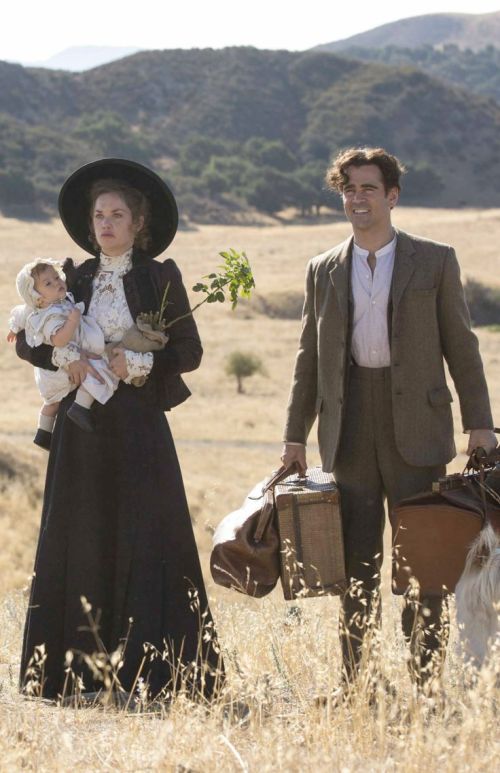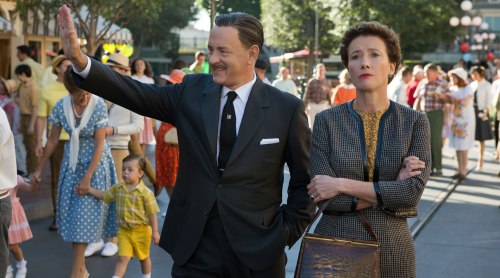****
Winds in the east
Mist coming in
Like something is brewing
About to begin
Can’t put me finger
On what lies in store
But I feel what’s to happen
All happened before.
Those words may look extremely familiar. If they do, you are probably hearing them sung in the cockney accent of Dick Van Dyke’s Bert in Mary Poppins. They are also the first words, and the last words, of Saving Mr. Banks. I did not recognize the voice almost whispering them at the start of this movie because they seemed so familiar, and yet so very different simultaneously. Colin Farrell spoke them as P. L. Travers’ father, which we soon saw as the young, fun-loving, imaginative Dad who played with his young, fun-loving, imaginative daughter, whom he called (Princess) Ginty. Quickly we cut to a more modern, stern P.L. Travers, who appears to have none of the characteristics of her younger self. But those words Farrell said, especially the second time, evoked a strong emotional reaction from me. I have not seen Mary Poppins since I was probably in my early teens, so it puzzled me as to why this voice and those words could affect me so strongly.
The character I felt worst for in this movie was P.L. Travers’ mother. P.L. Travers wrote Mary Poppins. P.L. Travers also seemed to have been a fun, whimsical child in Australia long before she became the curmudgeon of this movie. She had a doting father—Colin Farrell, In Bruges—and a boring, killjoy mother—Ruth Wilson, the vivacious Princess Betsey Tverskoy in Anna Karenina. However that father was a consumptive alcoholic and the mother was just doing the best she could. Since this is P.L. Travers’ story much of it features the child version of her—newcomer Annie Rose Buckley.

Travers, Martha and Baby Goff looking upon their new home in End-Of-The-Line Australia, 1906. Ruth Wilson & Colin Farrell in Disney’s Saving Mr. Banks.
Adult P.L. Travers gets Emma Thompson—Nanny McPhee. But we meet her twenty years after she has written the book. It would be interesting to meet her then. It is not that she is boring as a 60 year-old, but that she is simply unlikable as one. She has trauma in her past, but no compassion. On the other hand there is the oh-so-likable Walt Disney, but, as he says, he always gets what he wants, so how difficult is it to be likable when you get that? John Lee Hancock—director of The Blind Side—cast someone well suited to the role—Tom Hanks, Captain Phillips. Actually, based on those names Tom Hanks might have cast John Lee Hancock as the director! Hanks kills it as Walt. The creative team that works with Travers also does a wonderful job of being both funny in the moment and for the audience, which is always a sign of good acting. Those three excellent actors were Bradley Whitford—from the criminally under-appreciated “The Good Guys” and “The West Wing”, B.J. Novak—”The Office” and Inglourious Basterds, and Jason Schwartzman—Scott Pilgrim vs. The World and Rushmore.
My favorite moment comes from Paul Giamatti. He seems extremely over cast in such a small role; he plays a limousine driver. His is a chipper, simple Californian who contrasts sharply with the rude, London-ian P.L. Travers. But then he has a truly touching moment that explain his character and his seemingly lighthearted comments about the weather. That summarizes this movie. Stars play people both mythical and minor and then ,when their characters seem chosen to fit superficial needs of storytelling, they each have something that resonates. And they did resonate, at least for me. Even though I am not a father, a creator, a writer, or an orphan, Watching this I felt human and that was enough of a connection for me and for these characters.
